|
by Melika Panneri, Director of Educational Technology & Innovation Last week I packed my bags and headed to Orlando. It was not for a trip to hang out with Minnie or Mickey or at Harry Potter World, but to attend the Future of Education Technology Conference (FETC). It was going to help me answer the question every educator asks themselves. How do we prepare our students for the future? We have reached a time in our history where things are changing very quickly. How can we possibly keep up? Just ten years ago there wasn’t even an iPhone, and now we are surrounded by students who take for granted that they can FaceTime with their friends and family all around the world, seeing and hearing them as if they were in the same room. At Wilson, our mission revolves around preparing our students for success in an ever-changing world. At FETC, I was surrounded by innovative educators striving to do the same. It was a great reminder that what we do here, day-to-day, is amazing work to prepare Wilson students for whatever comes their way.
We can do this effectively because we are a small school. Our teachers have opportunities to collaborate, teach, plan, work, and make changes together that would be quite difficult in a bigger school. One way we do this is through integrated learning, our approach to teaching and learning that helps students to understand and experience the truth that subjects are related and overlap in many instances. This summer, our teachers spent the good part of a week working and planning to tie together units of study in order to help our students see their value and connectedness. When our fourth-grade students delve into their National Parks project, it involves research, writing, science, technology, and social studies. In my day, this would have been simply a social studies project to learn about the location and features of a national park. As I listened to Sir Ken Robinson at FETC, a well known innovative thinker in education, I was reminded of another talk he gave where he said, “In schools subjects tend to be hermetically sealed off from each other - you do science on a Thursday morning, you do math in the afternoons, and this is really a feature of education, because outside of education people know naturally that all these things flow in and out of each other, disciplines affect each other.” With integrated learning, Wilson students make connections across subjects and learn through authentic activities. We don’t just want our teachers to be collaborative at Wilson. It is a goal for our students as well. Throughout their years here, they have many experiences which allow them to become skilled at the give and take that happens when working with others on a shared goal. Our Flex Time is a great example of this. This year our upper school students have used this time to create life-sized games for our playground. It has been pure and utter joy for me to watch as groups of students plan, budget, draft, measure, shop, mess up and do it all over again to create four playground games that will be unveiled this Friday for all the students to try. I am quite certain it will be an experience they all will remember. Last year during Flex Time, students were challenged to create a prototype and present it to a panel in Shark Tank style. The inventions, budgets, websites, and presentations they created to convince our panel to invest in their products were amazing. Best of all was watching them grow and learn while working in a team where they all had different strengths and weaknesses. Wilson students have many chances to be innovative designers; the experience of planning and making something from scratch involves many skills that translate very well into the real world. We don’t just want our students to understand how subjects overlap and connect, we want them to understand how connected all the people of the world are. A few experiences come to mind on this topic. Our third-grade students become Global Scientists through units of study with Level Up Village. While learning about the uses, properties, and availability of water, they work alongside third grade students in another country. This year they are working with students in Mexico. The students exchange videos about the science of water, but also about themselves. Last year, our students were surprised by how much less water their counterparts in Nicaragua were using. They found out the students in Nicaragua did not have flush toilets. It’s a powerful experience to realize, at a young age, that you are just one part of this big world. This year, our second grade students took part in The Great State Letter Race where they wrote letters to connect with other second grade classrooms around the United States. They asked each other questions to help them understand how they might be alike and different. This year, second-graders in Alaska wrote and told our students they have outdoor recess unless the temperature dips below -11 degrees. In French class, our students’ learning extends beyond the classroom through conversational videos with children in France. These experiences, and so many more, help Wilson students broaden their perspectives and understand others in ways that will help them work effectively with anyone. We teach coding at Wilson and have for over a decade, but it’s not because we think every single student will need to be able to code. We don’t teach every student to write poetry because we think they will all be poets. Learning to code means learning to be flexible in your thinking, to tolerate mistakes and frustration, to persevere and often how to collaborate and communicate with others to find a solution. In short, it requires computational thinking. Wilson students have many opportunities to code. They code in a hands-on way when they code-a-teacher, making me walk and move according to the code they write. They code robots, monsters, and bumble bees too. When they are young, these hands-on coding experiences help them to see and correct their mistakes in a concrete manner with immediate feedback. As they get older, the students take part in many coding projects. They code a character to write their names in math class using coordinates and a variety of other commands. They code to create scenes and animations that explain idioms in language arts class. They code to create a virtual Egyptian journey in social studies class. These projects are shared online, so people from all over the world can experience them. Wilson students are computational thinkers who identify problems and work with others to find solutions that result in a finished project they can be proud of. We want our students thinking of the future, their own and that of our world. Just when we all get a little nervous about the future, we see the thinking our students are able to do and give a sigh of relief. Our sixth-graders begin their year setting goals for themselves and imagining their future. They put themselves on the cover of Time Magazine’s Person of the Year issue. This year’s covers had everything from architect to inventor to public servant to Olympian. These students never cease to amaze us. They identify authentic problems in our world and think of the steps they need to take to help, all at eleven and twelve years old. They feel empowered to work toward achieving goals. While we all feel the quick pace of our world, we at Wilson know it still is important to acknowledge that not everything is moving at warp speed. Some things take time and only change when there is a real need to do so. At FETC, I was presented with this quote: “Books will soon be obsolete in the schools. Our school system will be completely changed in 10 years.” The teachers in the audience nodded in agreement, some commenting what a shame it would be for books to go away entirely, but also understanding how information can be updated and changed so easily and with little cost in an e-book. Then all our discussion stopped when we were shown the author and the date of the quote. To our shock, this quote was from Thomas Edison in 1913 - the very year of Wilson’s founding. It was a great reminder that while it feels like things are moving at a breakneck speed, some things endure. At Wilson, our classic and innovative approach to teaching and learning takes this into account. We want our Wilson graduates to find success in an ever-changing world. They are living in an age where the content they seek is only as far as the device in their hands. The Wilson difference is the experiences they have that give them an opportunity to become skilled in effective collaboration, to think critically about issues and problem-solve solutions, and to show global perspectives and successfully interact across cultures. The so-called digital age we have entered still requires much human interaction if one is to find success. Wilson teachers do use technology a lot, but always with the idea of pedagogy before technology. We are very purposeful in its use. While I cannot see into the future, I feel confident Wilson students will be prepared.
0 Comments
Your comment will be posted after it is approved.
Leave a Reply. |
PublicationsWilson in the NewsNews Categories
All
|

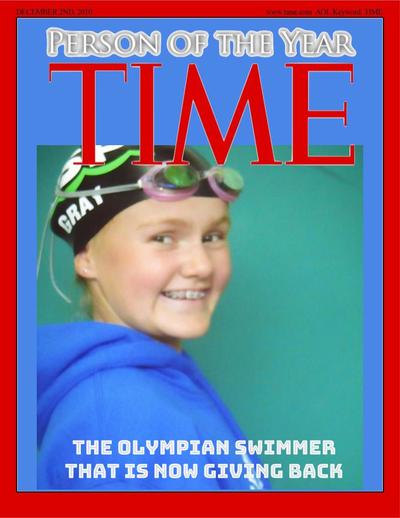
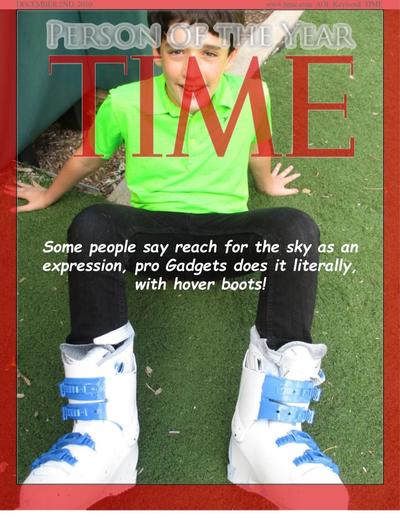
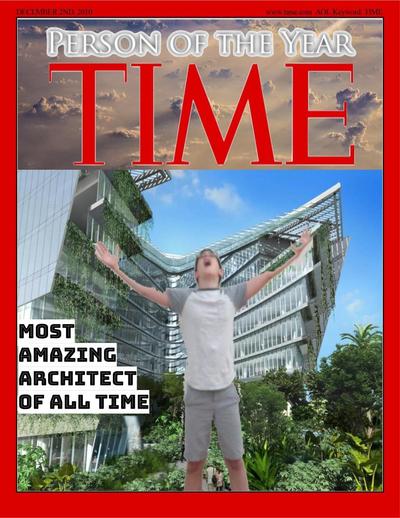
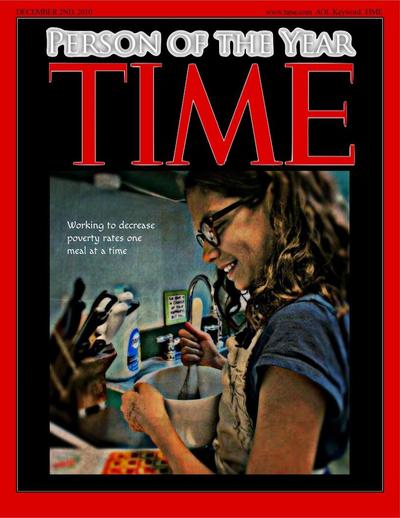
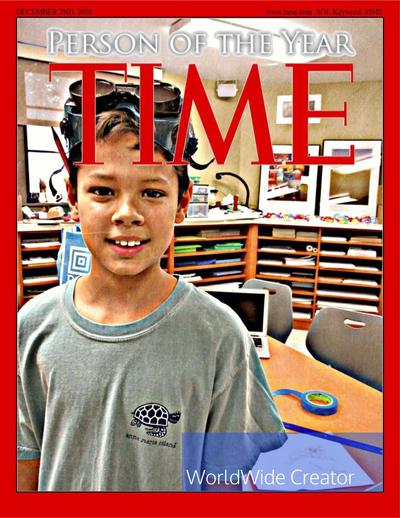
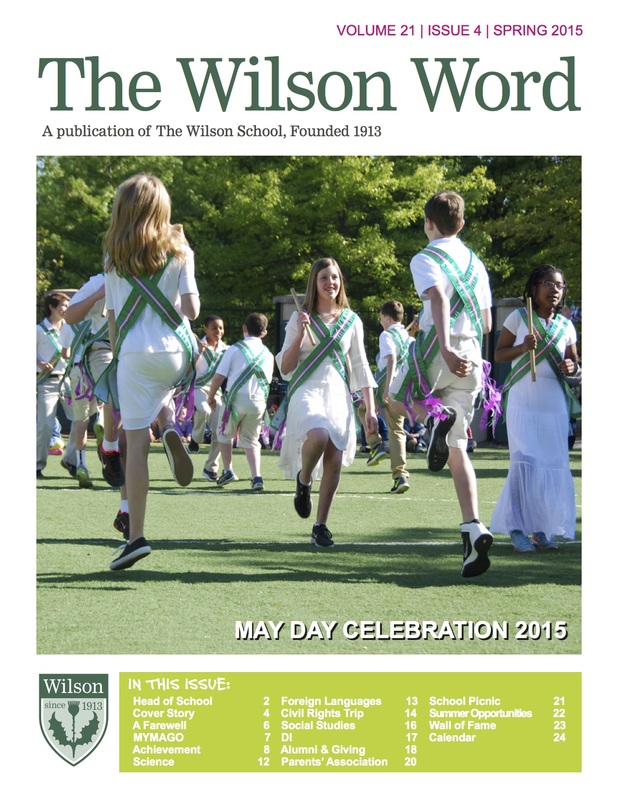
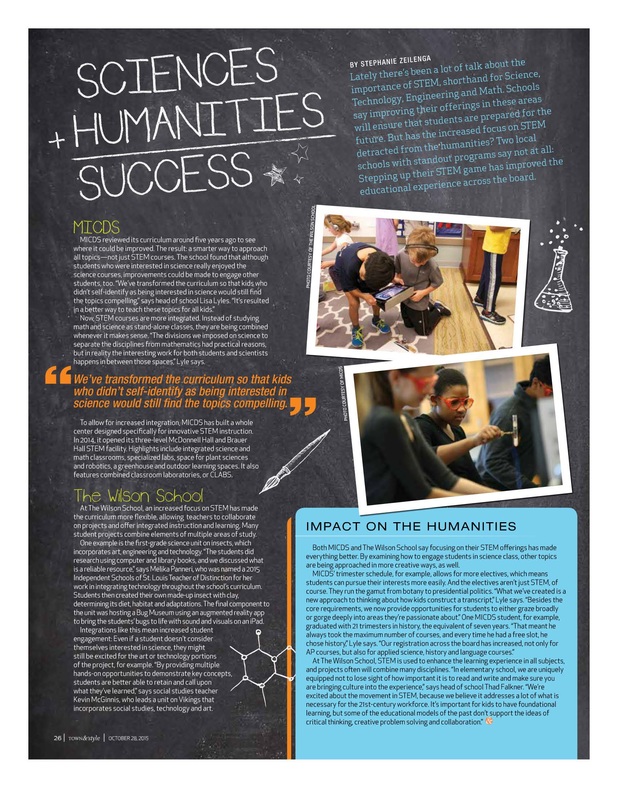
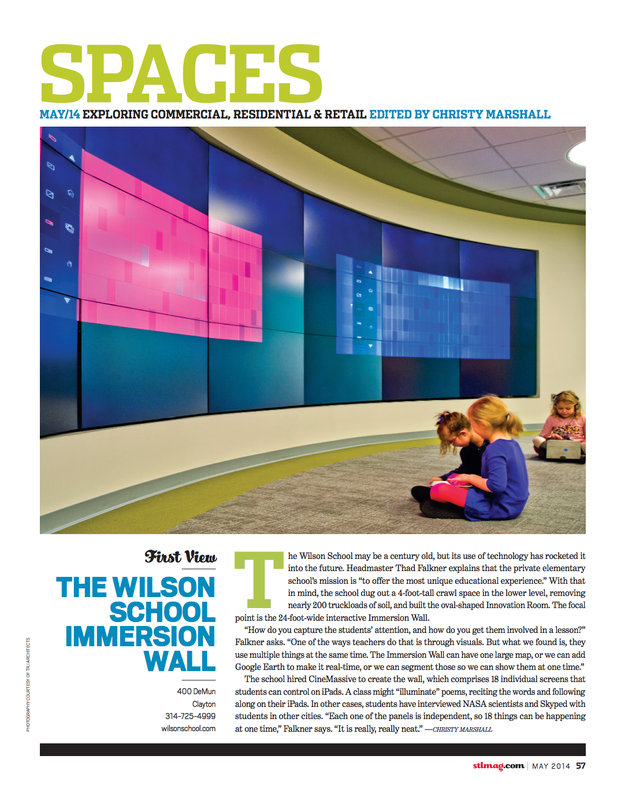
 RSS Feed
RSS Feed
